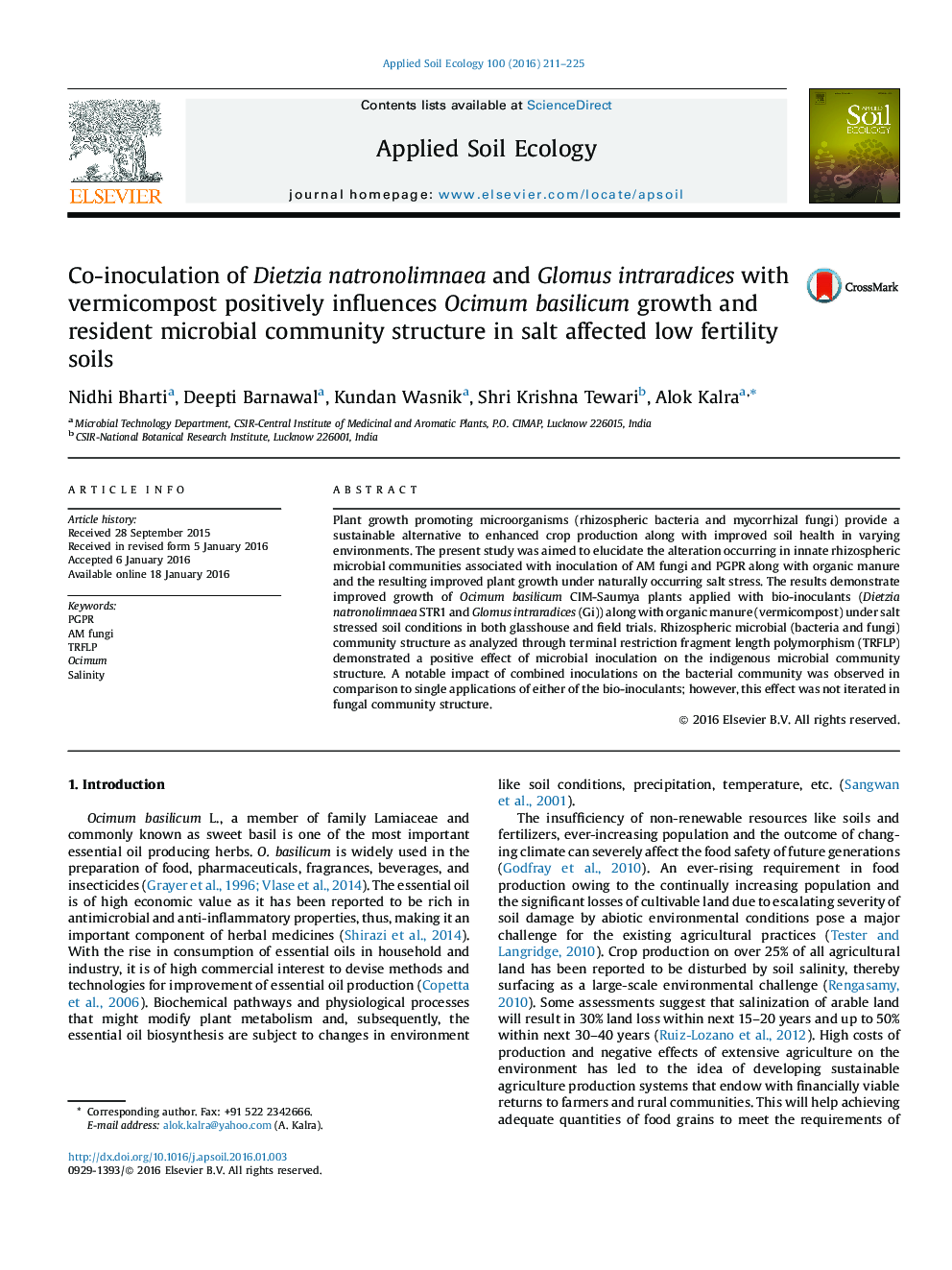| Article ID | Journal | Published Year | Pages | File Type |
|---|---|---|---|---|
| 4381816 | Applied Soil Ecology | 2016 | 15 Pages |
•Bio-inoculants improve Ocimum basilicum growth under salinity stress in both glasshouse and field conditions.•Microbes and organic manure amendment altered bacterial but not fungal community structure.•Rhizosphere fungal communities show a heterogeneous effect of bio-inoculants.•Addition of bio-inoculants has a positive impact on indigenous rhizosphere microbes.
Plant growth promoting microorganisms (rhizospheric bacteria and mycorrhizal fungi) provide a sustainable alternative to enhanced crop production along with improved soil health in varying environments. The present study was aimed to elucidate the alteration occurring in innate rhizospheric microbial communities associated with inoculation of AM fungi and PGPR along with organic manure and the resulting improved plant growth under naturally occurring salt stress. The results demonstrate improved growth of Ocimum basilicum CIM-Saumya plants applied with bio-inoculants (Dietzia natronolimnaea STR1 and Glomus intraradices (Gi)) along with organic manure (vermicompost) under salt stressed soil conditions in both glasshouse and field trials. Rhizospheric microbial (bacteria and fungi) community structure as analyzed through terminal restriction fragment length polymorphism (TRFLP) demonstrated a positive effect of microbial inoculation on the indigenous microbial community structure. A notable impact of combined inoculations on the bacterial community was observed in comparison to single applications of either of the bio-inoculants; however, this effect was not iterated in fungal community structure.
